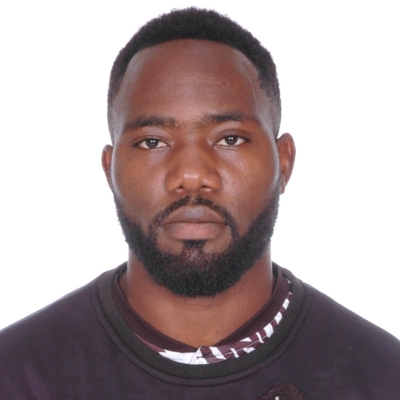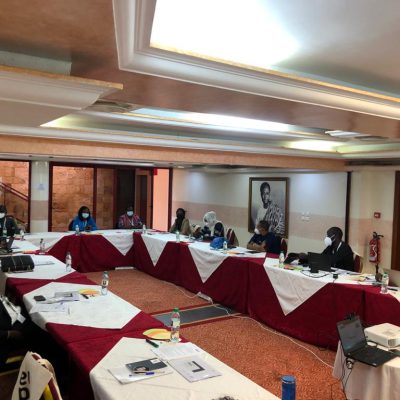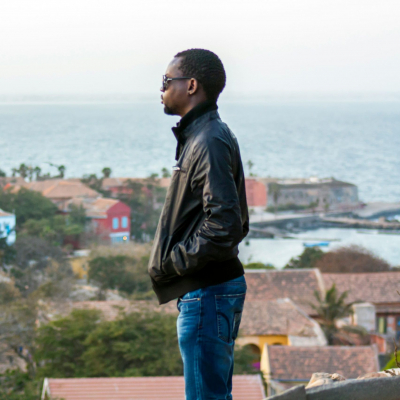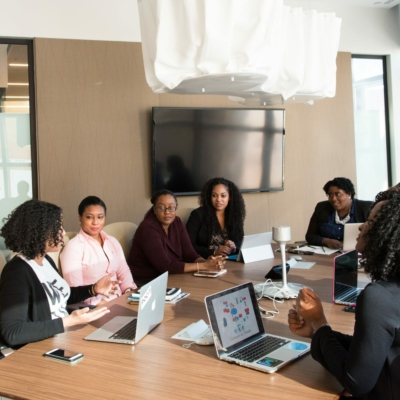
SFI Overview of Senegal
In the context of an economy dominated by the informal sector, high youth unemployment and a growing population, being an entrepreneur and running a startup is generally commendable in Senegal as it provides a platform for dynamic and passionate young talent to solve problems faced by society.
The main drivers of Senegal’s startup scene include the entrepreneurial culture, its political climate, its strategic positioning in the subregion and in francophone Africa, an active but informal “buddy system” and ambitious ecosystem builders, government support and investment (local and international), as well as policy innovation towards startups.
To help us understand the holistic picture of Senegal as a startup ecosystem, we interviewed Joelle Sow, the General Secretary of SenStartup, Fatou Kamara, the Head of Innovation and Student Professional Insertion at Universite Gaston Berger (UGB), Coumba Diop, Head of the operational office of the university business unit at Alioune Diop University in Bambey, and Ahmadou Seck, founder of the startup Insuris.
Our SFI shows a relatively encouraging unemployment rate of 7% from World Bank data, giving the country an average score of 75.63 for Unemployment. However, most of the employed work in the informal sector economy as more than 90% of businesses are informal in Senegal . Youth unemployment and professional insertion is a big problem as well. Fatou Kamara, head of innovation and student insertion at UGB, estimates that each year between 200,000 to 300,000 young Senegalese enter the labor market. Compounding the situation, she adds that the education market does not always prepare students for the job market. In Senegal, she states that young people often complete training programs which are “not adequate to the job market, don’t have the necessary information about opportunities and are limited in their vision”. Regional data from the ANSD (Agence Nationale de Statistique et de la Démographie) suggests the unemployment rate is closer to 20% . Kamara asserts that “there are not enough companies to employ everyone, so the alternative is entrepreneurship. So it is important to accompany young people to not only become entrepreneurs but also creators of job opportunities for other people ”.
While high unemployment is a real challenge, Senegalese youth have responded by embracing entrepreneurial culture. Senegal receives a score of 78.31 in our Entrepreneurial Culture domain, which is more than above average and even higher than Singapore, the leading country on the global index, which scores 49.99. Senegal scores as high as 100.00 with regards to Fear of Failure, as 66.60% of the population intend to be entrepreneurs while 68.95% consider Entrepreneurship as a Career. These values are the highest score in our index. There is no lack of risk engagement or initiative in Senegal when it comes to starting the entrepreneurial journey.

Despite these positive views on entrepreneurship and the entrepreneurial culture, they aren’t enough to sustain the general startup ecosystem. The country’s infrastructure problems and the lack of funding have been continuously identified as the major constraints to startups and businesses. This explains why more than 50% of businesses in Senegal identify funding access as a major constraint, giving it a score of 46.69 in Dakar, 28.23 in Saint-Louis, and 16.83 in Bambey. Ahmadou Seck, an entrepreneur and mobile developer, confirms how a lack of funding for his startup Insuris became a barrier to growth. Lack of funds caused his project to be delayed by several months, putting his startup journey on stand-by. Seck identified financial constraints and a lack of mentorship for startups as the main stumbling blocks. To him, the best way to overcome this obstacle is to submit several funding applications. He submitted applications to early-stage incubators and accelerators, such as Orange and DER, however due to the highly competitive landscape and the large number of applications, he has yet to access support.
With the exception of Dakar and Ziguinchor, Senegalese cities score below average for Startup Scene (less than 27.37). With a growing number of hubs and spaces designed to help entrepreneurs to thrive, the scene is developing; however, it is not keeping pace with the sheer amount of entrepreneurial activities. Growth is expected to occur in the ecosystem with a mix of investment, innovation, patents, products and services. According to Forbes, Senegal has about 15 hubs. This is impressive within West Africa, however it still lags behind other countries such as Cote d’Ivoire, which has 22 hubs, or South Africa with over 78 hubs and a score of 26.15 on our SFI index for Hubs, while Dakar stands at 13.07. There is also a limited penetration of incubators and accelerators in the interior cities like Bambey and Ziguinchor. Besides the university incubator in Ziguinchor, none other exists. According to Coumba Diop, most startups, incubators and big companies are concentrated in Dakar, in turn making it difficult for a real ecosystem to develop in smaller cities.
Despite having many educational institutions, Senegal performs poorly in the University Score in our SFI, receiving a score of zero. No Senegalese university is listed in the global rankings. Joelle Sow adds that universities are strongly focused on theory, don’t teach problem-solving skills and are more or less a copy of the French colonial university system. Sow insists, however, that “the trend in the future will see universities having a much bigger role in the ecosystem”, not only as producers of human capital but as capacity builders, enabling incubator and accelerator programs for students at university levels.
Sow expanded on the importance of design thinking in schools in order for youth to have exposure to the entrepreneurial mindset at an early age.
Despite receiving a 0.00 in University Score, it’s important to note that Senegal has managed to attract French foreign universities who have launched campuses in the country to provide quality education comparable to that received in France. Such examples include the Montpellier Business School and Kedge which are amongst the Top 20 French business schools.
Additionally, other instruments have been used by public and private institutes to boost tertiary education. Orange Senegal, a technology park in Dakar, has run startup training programs via its Orange Digital Center, which offers training programs free of charge. According to inputs from World University Rankings and the World Bank, very few students are registered in universities and tertiary institutions. As an example, in Dakar, which has a more developed ecosystem of universities and training centers, only 19 students are enrolled in universities out of every 1,000 people. This is very low on the SFI as it reflects a 4.85 for University Students score. Fatou Kamara helps us understand this situation; “there are students who are being sent to Koranic schools and as a result don’t go to the French-oriented schooling system and universities”. The existence of Islamic cultural schools like Koranic schools are at times preferred by parents to “secular education”. Joelle Sow also shares this view as she highlights the fact that Senegal has a low rate of literacy. A study from 2017, conducted by indexmundi, shows a national literacy rate of only 51%, with women making up just 31% of that figure. This lack of education is also reflected in the fact that more than 90% of all startups are owned by men.
Looking at the country’s labor market, we encounter a better situation. Senegalese cities score above 70 in the labor market on the SFI. This can be explained by the fact that the government has put policies in place that enable the easy set up of a company. Additionally, less than 5% of Senegalese firms see labor regulations as a constraint to business, leading to an SFI score on Labor Constraint of 94.93 in Senegal, as a general example. Sow explains how government policies have fostered the creation of startups within the context of the 2019 Startup Act, which eased regulations and created a favorable framework for startups. However, she also explained that there is a general tendency for women to shy away from entrepreneurial duties. Sow thinks this may be a cultural phenomenon as women have responsibilities at home and some may not want to choose between their private life and taking responsibility in a startup business. She adds that the ecosystem is very favorable for women participation and emancipation, although “it would be great to have more brave women in the ecosystem”. In her ecosystem, out of 100 startups there are only about 2 or 3 female founders.
Infrastructure has continually been one of the main concerns for Senegal over recent years. This is reflected in SFI scores, with Sengalese cities receiving a score of 45.00 in the Infrastructure domain, which is below the average global score. However, most countries in Sub-Saharan Africa find themselves in this range. Ghana for instance scores 41.14, while Kenya scores 45.83. Generally, this implies that infrastructure still very much needs to be developed and improved upon.
Other indicators such as Internet Costs, Internet Access and Download/Upload Speed come into play for the ICT subdomain of Infrastructure. In Senegal, we witness an inverse relationship with cost and quality. Normally with higher prices, you expect to receive the best quality. Well, exceptionally for Senegal, the mobile internet cost is very high (about $68 /month) and the quality is very low. Internet access is actually a considerable cost for startups. Most cities in Senegal score between 27 and 34 on the SFI, which is below the global average ICT score of 42.95. Sow adds that “although considerable work has been done by the Senegalese government to improve circulation by the provision of roads that enable people to move faster between cities, there is still a lot to be done with regards to infrastructural development”. She added that the provision of investment in fiber internet would be beneficial, especially to tech startups.
Besides ICT needs, pollution has been a major threat to the ecosystem and the entire economy. Most cities are getting more industrialized, and activities ranging from agriculture, energy, mining and refining, vehicle emissions, and waste burning are all major environmental hazards. An article from the New York Times identifies two major causes of the high levels of pollution in Senegal. The first is related to natural pollution from wind and dust blown from the Sahara during the dry season (known as the harmattan winds or harmattan season). The second is the pollution from industry and fuel, especially in the context of a growing population where cars and buses frequent the road in increasing numbers. These hazards affect both businesses and startups but also have a negative impact on the population and human capital. Research has shown that the number of childhood asthma cases at one of the city’s biggest hospitals had recently jumped. It is estimated that a third of the population has some kind of lung ailment. In part due to these factors, the country’s SFI Pollution score is one of the lowest, 9.39.
In the Macro-Political context, Senegal has enjoyed relative political stability since its independence in 1960. The country has never seen a coup-d’etat or civil war, rare for the subregion. Despite being classified as a “hybrid regime” in the democracy index, the political stability gives SMEs and startups a conducive environment for expansion and also creates a favorable ecosystem for foreign investments. This is also reflected in the SFI score as Senegal has a (Political) Stability score of 61.94. Globally, only a few cities score above Senegalese cities, for example Berlin (75.42) and Singapore (100). This is also the case for the democracy level, which stands at 62.73 in the SFI. Despite all the advantages enjoyed by SMEs in Senegal as a result of political stability, companies also have to navigate poor governance and high levels of bribery and corruption, which weigh down the total Macro score.
Recently, there have been some encouraging policies that have improved the legal framework. With the government initiative to ease the creation and legalization of startups, a government bureau, BCE (Bureau d’appui à la Création d’Entreprise, or “Bureau for the support and creation of businesses”) was developed. The BCE has helped decrease the waiting time for creating small businesses as well as startups. This bureau permits startups in Senegal to complete the registration process and officially create a business in six days. Only a few countries, like Singapore (2.5 days) and Bangkok (4.5 days) are as efficient with their setup, reflected in the SFI score for Dakar (98.03 for Business Registration Time).
In the Market domain, Senegal performs poorly, with most cities averaging 20.00 on the Market SFI score. Despite the fact that the country is an important player in the UEMOA (West African Economic and Monetary Union) region, it fails to capitalize on trade openness. Like most countries in the region, there is a heavy reliance on imports which puts pressure on local firms to compete with low global prices and creates a negative trade balance. In the SFI, this translates to a score of 12.60, which is very low, even compared to a similar economy like Ghana, which stands at 42.10 (Trade Balance).
Additionally, the startup scene suffers from its scores in the Market domain. In particular, Senegal performs poorly on the Logistic Performance Index (just 13.33). The biggest downturn in their market score is the poor Digital Market, scoring just 14.33 (one of the lowest on a global level).
Due to a high percentage of informal businesses (especially those in smaller towns and in rural areas), there is no special necessity to open bank accounts. Our SFI shows that online shopping users stand at a mere 3% of the total population based on data from the World Bank on Mobile Penetration, thereby giving them a score of 2.43. However, more regional sources show that that may not be the whole story. According to a recent study conducted by the country’s Bureau for Telecommunications (ARTP), Senegal has a mobile penetration rate of more than 110% . Additionally, Sow corroborates this finding: “mobile penetration is easily above 100%. It’s very rare to meet someone in Dakar who does not have a phone”. Likely, sources such as DakarStartup have a much more realistic view of the situation. Sow adds that despite this advantage of Senegal transitioning towards mobile, online stores don’t provide a lot of e-payment options like the local “Orange Money” (Orange Money, O.M. is the Orange group’s money transfer and mobile payment service, offered in most African countries). At this point it becomes difficult for users to buy online. The narrative is that startups have begun capitalizing on this opportunity and many FinTech startups are now proposing online payment services.
It is important to note that in Senegal, just like the rest of Sub-Saharan Africa, the number of people with bank accounts (financial inclusion) is very low. According to The Global Financial Inclusion Database, the rate of financial inclusion is about 42.3%, with a mobile money account rate of more than 20%. However local sources like SikaFinance estimate the real rate of access to banking and credit services to be about 20%. Although Senegal performs better than other countries in the region with a global findex rate of 39.7%, it still has a lot to do in comparison with Eastern African countries like Kenya that reach a global findex rate of 81% and a mobile money account rate of more than 72%. Also, according to le quotidien only about 120,000 bank accounts exist for a population of 17 million people. Digital payment facilitates financial transactions, as they could be done from mobile phones. E-payment and other electronic forms of payment like Orange Money, as well as alternative e-payment models, could help to improve the financial inclusion of the general population and be a great way to promote e-commerce in Senegal’s move towards a digital economy.
Taking into account all the infrastructural challenges faced by entrepreneurs, the importance of startups to the economy, and the willingness to catalyze digitalization and innovation in the economy, the Senegalese government has drawn up a number of policies to make the ecosystem more competitive. The most popular policy action so far has been the Senegalse Startup Act of 2019. With the introduction of this Startup Act, Senegal became the second country in Africa, the first being Tunisia, to put these frameworks in place for the promotion of startups in the ecosystem.





